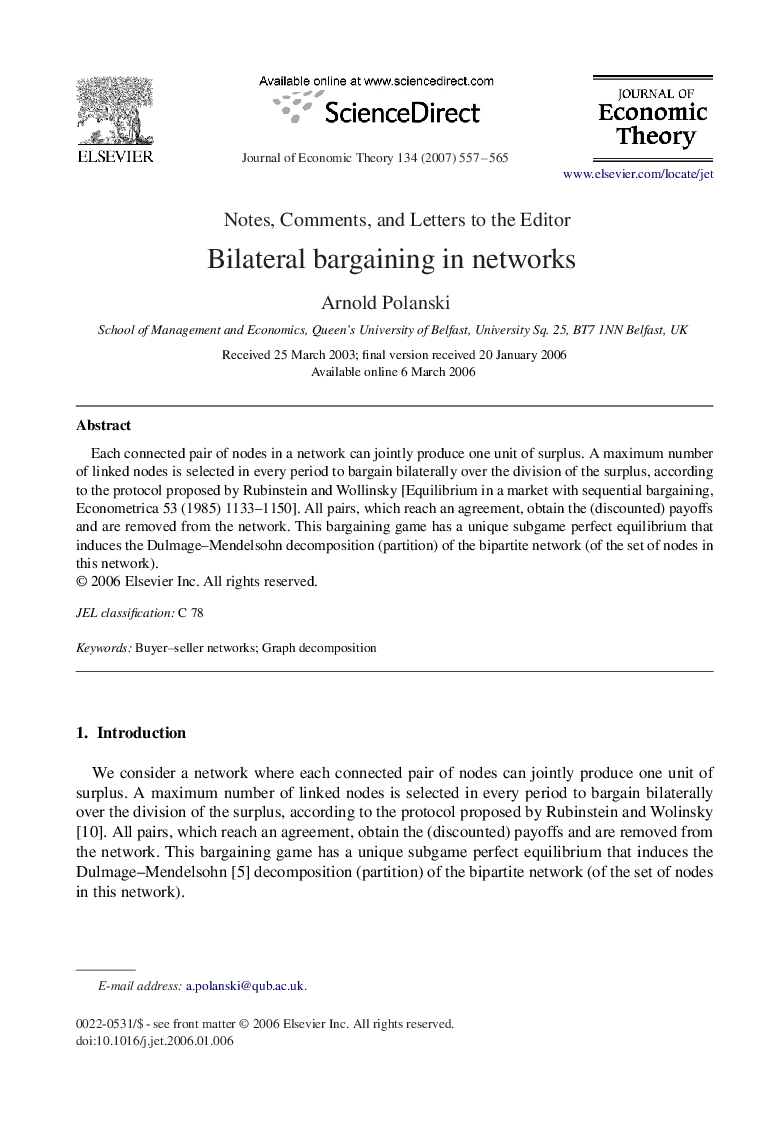| Article ID | Journal | Published Year | Pages | File Type |
|---|---|---|---|---|
| 957755 | Journal of Economic Theory | 2007 | 9 Pages |
Abstract
Each connected pair of nodes in a network can jointly produce one unit of surplus. A maximum number of linked nodes is selected in every period to bargain bilaterally over the division of the surplus, according to the protocol proposed by Rubinstein and Wollinsky [Equilibrium in a market with sequential bargaining, Econometrica 53 (1985) 1133–1150]. All pairs, which reach an agreement, obtain the (discounted) payoffs and are removed from the network. This bargaining game has a unique subgame perfect equilibrium that induces the Dulmage–Mendelsohn decomposition (partition) of the bipartite network (of the set of nodes in this network).
Keywords
Related Topics
Social Sciences and Humanities
Economics, Econometrics and Finance
Economics and Econometrics
Authors
Arnold Polanski,
